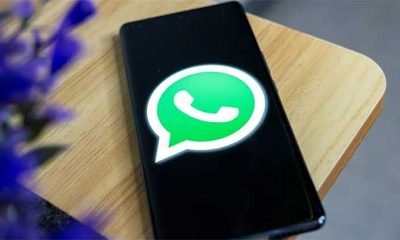Tech
Panasonic cuts full-year outlook as costly raw materials weigh

Tech
WhatsApp to launch file sharing feature without internet
WhatsApp to launch file sharing feature without internet
Tech
Flame-throwing robotic dog unleashed for sale in US
Flame-throwing robotic dog unleashed for sale in US
Tech
US military stage world’s first ever AI controlled warplane
US military stage world’s first ever AI controlled warplane
-

 Fashion3 months ago
Fashion3 months agoAmi updates bourgeois styles for fall runway show at Paris Fashion Week
-
Fashion3 months ago
Louis Vuitton opens Paris Fashion Week with Pharrell Williams’ styles from American West
-

 Sports3 months ago
Sports3 months agoSon and Bissouma ready for Spurs game with Brighton
-

 Sports3 months ago
Sports3 months agoSinisterra signs long-term deal with Bournemouth
-

 Fashion2 months ago
Fashion2 months agoGiorgio Armani catwalk blooms with florals at Milan Fashion Week
-

 World3 months ago
World3 months agoNorth Korea tests underwater nuclear drone, criticises US-led joint drills
-

 pakistan3 months ago
pakistan3 months agoECP convenes emergency meeting today
-

 pakistan3 months ago
pakistan3 months agoECP rejects Salman Akram’s plea for PTI affiliation























